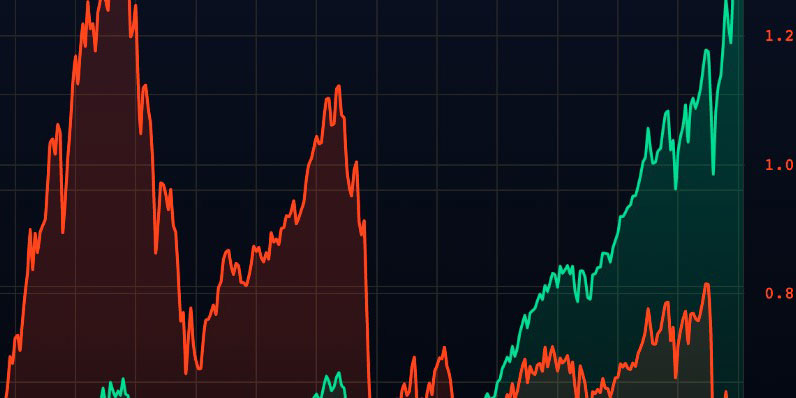A contract for difference (CFD) usually involves long and short positions. Brokers provide CFDs, who may also participate in the transaction as either of the two parties. CFDs are not the same as options and futures that may be traded in the United States since there is no standard contract size, no expiry date, and contracts are individually arranged.
CFDs are a tool that allows traders to bet on the short-term price direction of hundreds of different financial instruments. They also allow money managers to hedge the positions they have in their portfolios. CFDs are "leveraged" derivatives, which implies that investors only need to deposit 3.3%-50% of the transaction value depending on the contract. This lower deposit requirement attracts more investors. The investor receives a loan for the remaining sum from the CFD broker, who charges interest. CFDs are available for:
- Currency
- Global financial indices
- Bonds
- Stocks
- Commodities
- Sectors
- Cryptocurrencies
Spread bets are leveraged derivatives that traders use as a tool for speculation. They are comparable to CFDs. Spread betting, on the other hand, often includes a termination date, while contracts for difference do not. This is the primary distinction between the two. Spread betting is quite common in the United Kingdom and Ireland since most citizens are not required to pay tax on winnings from their wagers.
How a CFD Works
Depending on the specifics of the deal, contracts for difference (CFDs) are transacted in units that are equivalent to the "ask" or "bid" price of the underlying financial instrument. The price you sell at is the same as your offer price. For instance, the beginning of a CFD purchase transaction for the fictitious ABC corporation with a value of $10,000 might look like this:
Because the investor anticipates the price going up, they will initiate a "long" trade with a $10,000 CFD buy by purchasing 1,000 CFDs at the asking price of $10.00 each. This is referred to as a "long" transaction. The CFD broker has determined that the margin rate would be 5%; thus, the investor will deposit $500. The investor receives a loan from the CFD broker for the remaining $9,500.

If our optimistic investor is correct and the ABC bid increases to $10.50 one week later, the trade is now worth $10,500. The investor then makes a profit after paying back the loan to the CFD broker in the following manner:
The investor receives a return of $500, or 100%, on their initial investment of $500. What if the investor believes that ABC stock will continue its downward trend? The pessimistic investor might engage in a "short" transaction or a sale. For $9.95 per "bid," one thousand CFD units would change hands, bringing the total value to $9,950. The investor deposits 5% of the deal's total value, which is $497.50, and their account is credited with the entire amount of the trade, which is $9,950. If the negative investor is correct and the bid price for ABC one week later is $9.45, the situation would play out as follows:
A return of more than 100% on the initial investment of $497.50 is represented as a profit of $500. A loss of $1,000 on a deposit of $500 would occur if our optimistic investor was mistaken about ABC and the bid price fell to $9.
What It Implies for Those Who Invest on Their Own
Institutional investors in the United States use CFDs, swaps, and other highly leveraged derivatives. However, individual investors in the United States do not have access to CFDs. These enormous investments have a high risk of failing miserably, as in 2008. When this occurs, smaller investors can be affected by the harm.
Despite this, the collapse of Archegos Capital in 2021 shows that leveraged derivatives are still a hazard to the markets and individual investors. Archegos Capital is a family office, which implies a single person or family controls it and solely manages that person's wealth. In this instance, the only owner is billionaire trader Bill Hwang. The Investment Advisers Act of 1940 and related regulations about money management businesses do not apply to family offices.

Bloomberg claims that Archegos Capital, a hedge fund, arranged billion-dollar swaps and CFDs with investment banks Morgan Stanley, Nomura, Credit Suisse, and Goldman Sachs to place highly leveraged bets. Archegos lost money on these wagers because it lacked the necessary funds to fulfill the margin requirements when the aforementioned equities began to decline in value in March 2021.




